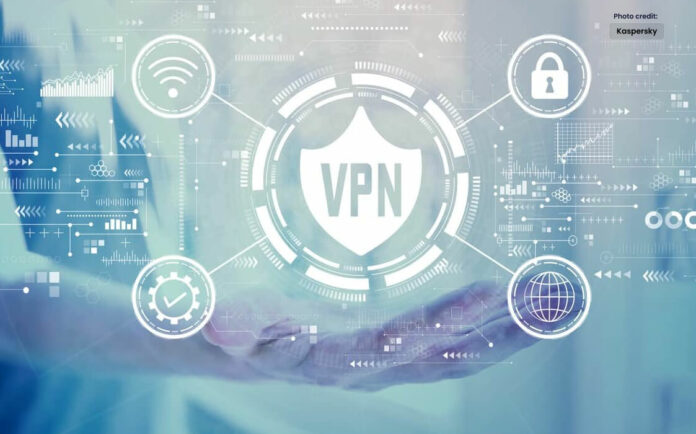VPN is an encrypted connection over Internet from device to a network.
Virtual Private Networks, or VPN, have become essential resources for organizations and individuals that are concerned about cybercrime.
What is a VPN?
A virtual private network is essentially a technology that creates an encrypted, safe connection over the internet. Data may be securely sent between your device and the server thanks to this connection, which acts as a tunnel.
Your online activities are protected from prying eyes by this encryption from data-hungry advertising, government snooping, and malevolent hackers.
How Do Virtual Private Networks Operate?
Your internet traffic is redirected through a server situated in a separate geographic location as part of the VPN’s operation.
This procedure encrypts the data transferred between your device and the server in addition to hiding your IP address.
This encryption makes sure that even if the data is intercepted, it will look as a random string of characters that cannot be deciphered without the encryption key.
VPNs’ Significance in the Current Digital Environment
Maintaining Privacy in a World of Extensive Surveillance
More and more governments and businesses are keeping an eye on people’s online activity, making privacy more important than ever.
By acting as a barrier, VPNs make it difficult for third parties to monitor and examine your online activity. Adding an extra layer of secrecy to your browsing, streaming, or critical transactions is possible with a VPN.
Safe Use of Public Wi-Fi
Wireless networks in public spaces serve as havens for cybercriminals. Vulnerabilities in these networks can be used by hackers to obtain your private data.
VPNs encrypt your connection, which makes it much harder for bad actors to access your device and damage your data this is especially important if you use public Wi-Fi in places like cafes, hotels, and airports.
Selecting the Best VPN: An Assisted Decision-Making Guide
Server Positions and Performance
The server locations of the VPN provider are an important factor to take into account. The more alternatives you have for hiding your location, the more varied the server network is.
Evaluate the effect on internet speed as well, since certain VPNs could slow down the connection. Seek for suppliers that strike a balance between fast performance and a stable server network.
Protocols for Security and Encryption
Different VPNs use different encryption techniques and security procedures. When evaluating the degree of security a VPN provides, it is essential to comprehend concepts like OpenVPN, IKEv2/IPsec, and AES encryption. We dive into the technical details, giving you information on the safest choices and assisting you in reaching a decision.
Geo-Restricted Content and VPNs
Opening a Universe of Information
Access to specific websites, streaming services, or material is frequently restricted by geographic limitations. By connecting to servers in the target area, a VPN enables you to get around these restrictions and unlock a world of previously unavailable information. Learn about the various ways VPNs improve your online gaming and streaming experiences.
Overcoming Frequently Held Assumptions
VPNs and Unlawful Conduct
There’s a widespread misperception that VPNs are mostly utilized for illicit purposes. We debunk this misconception and highlight the morally justifiable applications of VPNs, such as secure content access and personal data protection.
VPNs: Free vs Paid
Although there are free VPN services available, they have their own restrictions and other hazards. We examine the distinctions between premium and free VPNs, assisting you in weighing the benefits and drawbacks and coming at an informed choice based on your requirements.
The VPN Technology Landscape is Changing
VPNs’ capabilities grow along with technology. We explore cutting-edge developments and trends in VPN technology, including split tunneling, multi-hop connections, and improvements in encryption techniques.
Conclusion
Virtual Private Networks act as digital guardians, offering a barrier against the prying eyes of the internet world in a time when privacy is becoming a scarcer resource. This thorough tutorial has shed light on how VPNs operate, how important it is to protect privacy, and what factors to take into account when selecting the best VPN service for your requirements. With this information at your disposal, take charge of your online persona and confidently traverse the online environment, knowing that your privacy and data are protected.
Also read this: Google One Obtains a Free VPN and Dark Web Monitoring




